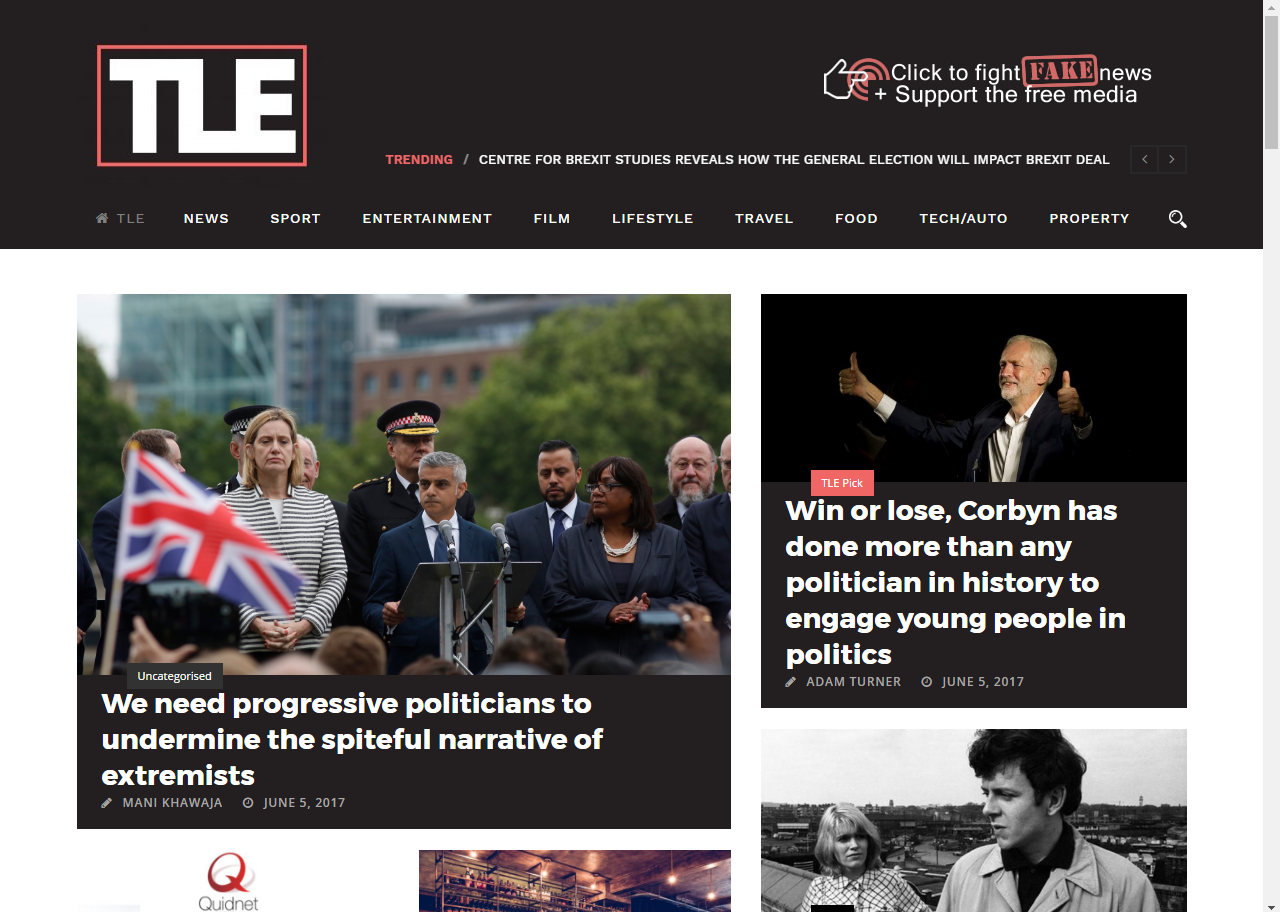
Jack Peat founded alternative news website The London Economic in 2014 off the back of a personal blog on economics which had a few hundred visits each month – mostly, Peat admits, from his mum.
Fast-forward three years and Peat, head of digital at South West News Service (SWNS), can boast that TLE published the most shared story on social media about the UK general election last week.
The story, headlined: “This Facebook story about Jeremy Corbyn is going viral,” has been shared more than 191,000 times and attracted 1.2m clicks.
At the time of writing, another pro-Corbyn story on the website – “Jeremy Corbyn fills the banks of the Tyne – Theresa May can’t even pack a small room” – has been shared 25,000 times in just 12 hours.
Peat told Press Gazette that TLE receives around 1.6m unique monthly visitors and expects this figure grow to over 3m in the next six months.
When it published the most shared story of the election last week, he claims the website picked up two million unique visits in two days.
SWNS, the biggest independent news agency in the UK, have a stake in TLE. Peat would not disclose its exact stake in the start-up, but he said that “no cash transferred hands”.
“I think that what appealed to [SWNS] was that news is changing, the media landscape’s changing and the way that we handle social and our own online presence builds this kind of platform which gives the ordinary person a vote is innovative,” Peat said.
“It’s dynamic and I think that they were interested at getting involved in it from that point of view.”
Peat said that, although SWNS helps the venture by giving it access to content – it is editorially independent of the agency. This is evident from the fact that TLE, as with most alternative news websites, is critical of SWNS’ biggest customer: the so-called mainstream media.
Peat co-founded TLE with his deputy editor Joe Mellor because the pair “saw a lot of political power in the mainstream media” and “felt a responsibility to at least try our hand at doing something about it.”
Rather than sticking to a political niche like some other alternative news sites, TLE also publishes culture, lifestyle and ‘weird news’ pieces (e.g. “Fashion student designs a hammock coat”).
In an editorial calling on readers to support “free and real journalism”, TLE accuses mainstream media outlets of dictating referendums and elections while protecting the interests of their proprietors.
Couple this stance against the mainstream media with the tone of its Corbyn coverage, and it could be argued that TLE is tapping into the same market as the likes of The Canary and Skawkbox – both popular with Corbynistas.
Unlike the Canary, TLE does not pay its contributors, which Peat estimates stand at around 200 to 300 writers.
Ollie McAninch, the commercial director at TLE, explains that even the site’s team of ten editors are “working on a part-time voluntary basis”.
McAninch told Press Gazette: “Whilst focusing on editorial and building up the readership of the site, we’ve been running at a loss.
“However, our aim is to now monetise the site in order to cover our cost base and support journalists.
“Whilst we want to continue to provide a credible platform for all contributors, our main objective is to pay full-time staff and journalists a fair rate of pay for their work and invest in grass roots journalism
“We are in the early stages of testing various programmatic and native ad platforms, and sponsorship models.
“Although our traffic is consistently growing, it still varies wildly depending on the content volume and subject matter.
“So whilst it’s too early to start celebrating or sharing figures, we broke-even for the first time this month which we are all really pleased about.”
The TLE carries sponsored (or promoted posts) such as this one and also appeals to readers for donations to help it “pay real, experienced and independent journalists to continue their work“. The plan is it to use this money to pay contributors and invest in investigative journalism.
Andrew Young, the director of SWNS, said: “SWNS is a forward-thinking news business.
“Our interest in TLE is just one of many investments we are making in digital journalism. These investments sit across the editorial spectrum.”
Email pged@pressgazette.co.uk to point out mistakes, provide story tips or send in a letter for publication on our "Letters Page" blog
